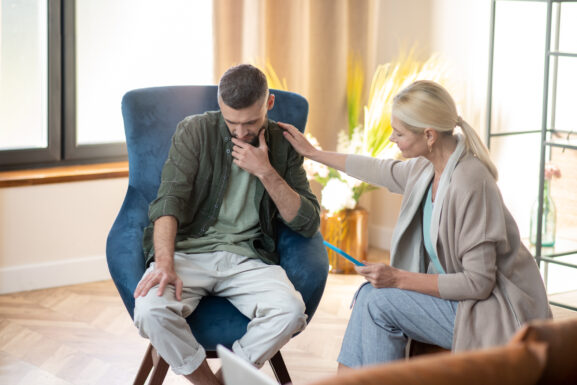How to Find the Best Emergency dental office near me: Tips and Considerations
How to Find the Best Emergency Dental Office Near Me: Tips and Considerations
When a dental emergency strikes, it can be a stressful and painful experience. Whether it’s a sudden toothache, a knocked-out tooth, or any other urgent dental issue, knowing how to find the best emergency dental office near you is crucial. In this comprehensive guide, we will provide you with tips and considerations to ensure you receive the best possible care when you need it most.
Understanding Dental Emergencies
Before diving into how to find the best emergency dental office near you, it’s essential to understand what constitutes a dental emergency. Dental emergencies can include:
- Severe toothache or pain
- Broken, chipped, or fractured teeth
- Knocked-out teeth
- Lost dental fillings or crowns
- Abscesses or infections
- Bleeding gums or mouth injuries
Recognizing these emergencies is the first step in seeking prompt and appropriate care.
Tips for Finding the Best Emergency Dental Office Near Me
1. Research Local Emergency Dental Services
Start by researching local emergency dental services in your area. Use search engines and online directories to compile a list of potential dental offices. Look for keywords like "emergency dental office near me" to narrow down your options.
2. Check Reviews and Ratings
Once you have a list of potential dental offices, check their online reviews and ratings. Websites like Google, Yelp, and Healthgrades provide valuable insights from other patients. Look for offices with consistently positive reviews and high ratings.
3. Verify Credentials and Experience
Ensure that the dental office you choose has qualified and experienced dentists. Check their credentials, certifications, and years of experience. Reputable dental offices often display this information on their websites.
4. Availability and Accessibility
Dental emergencies can happen at any time, so it's essential to choose a dental office that offers 24/7 emergency services. Additionally, consider the office's location and accessibility. You want a dental office that is conveniently located and easy to reach in an emergency.
5. Ask for Recommendations
Word of mouth is a powerful tool. Ask friends, family, and coworkers for recommendations. They may have had positive experiences with emergency dental services and can provide valuable insights.
6. Inquire About Payment Options and Insurance
Dental emergencies can be costly, so it's crucial to inquire about payment options and insurance acceptance. A good emergency dental office will provide transparent information about costs and work with your insurance provider to minimize out-of-pocket expenses.
7. Evaluate the Office Environment
When you visit a dental office, pay attention to the cleanliness and overall environment. A well-maintained and hygienic office reflects the professionalism and care of the dental team.
8. Check for Advanced Technology
Modern dental offices often use advanced technology to provide more accurate diagnoses and efficient treatments. Inquire about the equipment and technology used in the office to ensure you receive the best possible care.
9. Read About Emergency Protocols
A reputable emergency dental office should have clear emergency protocols in place. Ask about their procedures for handling dental emergencies and how quickly they can accommodate you in urgent situations.
10. Consider Tele-dentistry Options
In today's digital age, some dental offices offer tele-dentistry services. This allows you to consult with a dentist remotely, which can be especially useful for initial assessments and advice in emergencies.
Common Dental Emergencies and How to Handle Them
Understanding how to handle common dental emergencies can make a significant difference in minimizing pain and preventing further damage. Here are some common emergencies and immediate steps you can take:
Severe Toothache
A severe toothache can be debilitating. Rinse your mouth with warm water, floss to remove any debris, and take over-the-counter pain relievers. Contact an emergency dental office as soon as possible for further evaluation and treatment.
Knocked-Out Tooth
If a tooth is knocked out, handle it by the crown (the part visible in the mouth) and avoid touching the root. Rinse it gently with water if dirty but do not scrub or remove tissue fragments. Try to reinsert the tooth into its socket if possible, or keep it in a container with milk or saline solution. Seek immediate dental care.
Broken or Chipped Tooth
Rinse your mouth with warm water and save any broken pieces. Apply a cold compress to reduce swelling and take pain relievers if needed. Contact an emergency dental office for further evaluation and treatment.
Lost Dental Filling or Crown
If a filling or crown falls out, you can use over-the-counter dental cement or temporary filling material to protect the exposed tooth. Avoid chewing on that side of your mouth and contact an emergency dental office for a permanent solution.
Abscess or Infection
Dental abscesses can cause severe pain and swelling. Rinse your mouth with saltwater to help alleviate discomfort. Seek immediate dental care, as infections can spread and lead to more severe health issues.
Bleeding Gums or Mouth Injuries
If you experience persistent bleeding or mouth injuries, rinse your mouth with warm water and apply gentle pressure with a clean cloth or gauze. Seek immediate dental care if bleeding does not stop or if the injury is severe.
FAQs About Finding the Best Emergency Dental Office Near Me
1. How do I know if my dental issue is an emergency?
If you experience severe pain, bleeding, swelling, or have a knocked-out or broken tooth, it's likely a dental emergency. Contact an emergency dental office for guidance.
2. Can I go to the emergency room for a dental emergency?
While emergency rooms can provide initial care for dental emergencies, they may not have specialized dental equipment or expertise. It's best to seek care from an emergency dental office.
3. What should I do if I can't reach an emergency dentist?
If you can't reach an emergency dentist, go to the nearest emergency room for immediate care. They can provide temporary relief until you can see a dentist.
4. Are dental emergencies covered by insurance?
Many dental insurance plans cover emergency dental services. Contact your insurance provider to understand your coverage and any out-of-pocket costs.
5. How can I prevent dental emergencies?
Maintain good oral hygiene, wear protective gear during sports, avoid chewing on hard objects, and visit your dentist regularly for check-ups and preventive care.
6. What is tele-dentistry, and how can it help in emergencies?
Tele-dentistry allows you to consult with a dentist remotely via video calls. It can provide initial assessments and advice, helping you determine the urgency of your situation.
7. How quickly should I seek care for a knocked-out tooth?
Seek care immediately for a knocked-out tooth. The best chance of saving the tooth is within 30 minutes to an hour after the injury.
8. Can I use home remedies for dental emergencies?
While some home remedies can provide temporary relief, they are not a substitute for professional dental care. Always seek advice from an emergency dentist.
9. What should I bring to an emergency dental appointment?
Bring any dental records, a list of medications you are taking, and any dental insurance information. This will help the dentist provide prompt and accurate care.
10. How can I find a reliable emergency dental office in a new city?
Use online search tools, read reviews, and ask for recommendations from locals. Contact dental offices to inquire about their emergency services and protocols.
Conclusion
Knowing how to find the best emergency dental office near you is essential for ensuring you receive prompt and effective care during a dental emergency. By following the tips and considerations outlined in this guide, you can make informed decisions and minimize the stress and pain associated with dental emergencies.
The information on this site is intended for general informational purposes only and is not a substitute for professional medical advice, diagnosis, or treatment. Medical knowledge is continuously evolving, so the content here may not always be current, complete, or comprehensive. Always consult your healthcare provider before starting or altering any treatment. In the event of a medical emergency, contact your doctor or dial 911 right away.


